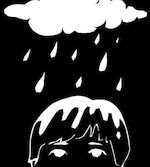|
ENG 1100
Dr. Edmond Y. Chang Download the course policies and syllabus (PDF).
"I was attracted to science fiction because it was so wide open. I was able to do anything and there were no
walls to hem you in and there was no human condition that you were stopped from examining."
|
THIS COURSE will introduce students to speculative and science fictions of color as political and vernacular theory, as strategies for thinking critically about the past, present, and future in order to imagine what this world (and others) would be like under different conditions and configurations of race, gender, sexuality, ability, nation, and other formations. Sheree Thomas, editor of the collection Dark Matter: A Century of Speculative Fiction from the African Diaspora, said, "The science fiction and fantasy genres have always offered readers, bold, extraordinary ways by which to examine society. The results have often been visionary, with writers acting as unflinching voyeurs who deliver engaging, sometimes scathing critiques of our traditions, values, nightmares, and dreams." Similarly, Betsy Huang argues in Contesting Genres in Contemporary Asian American Literature that "science fiction affords Asian American writers a unique way to engage in subversive political and ideological critique not by contravening genre conventions, but by using them to rewrite the rules of the genre.” We will explore and analyze the intersections of literature, genre, bodies, media, and technology with particular attention to authors of color and texts and perspectives from different parts of the world. A REQUIREMENT for this class is a well-developed curiosity about the world, about the culture we live in, and about the cultural productions we imagine, produce, and consume. In other words, this class is about reading, critiquing, and analyzing our culture through different literatures and texts. We will engage different practices enjoying and analyzing literature and other media, as well as develop literary, feminist, and queer strategies, habits, and perspectives of reading, thinking, and writing. Foremost, we will read and research with pleasure and for pleasure. We will also close read for analysis. And lastly, we will read and deploy literature as theory, as dramatizing the concerns, wonders, struggles, and politics of lived life and experience. THIS SYNCHRONOUS ONLINE COURSE will engage in close reading, guided discussion, and some formal academic and informal writing about how and what these texts argue, reveal, narrate, hide, perpetuate, and complicate the world we live in. Discussions, papers, and other assignments will be held online via videoconferencing, the course website, and Blackboard portal. SPECIFICALLY, our course goals include (the formal ENG 1100 outcomes are in bold):
• You will be able to identify and discuss the salient features of intercultural texts and cultural artifacts.
We will develop and demonstrate a familiarity with a range of texts, terms, and theories, engaging
with science fiction and speculative literature, geographical areas, genres, and literary traditions.
WE WILL spend the quarter asking and addressing difficult,
challenging, and sometimes discomforting ideas, questions, and topics, focusing on different
identities, bodies, histories, desires, experiences, and even struggles and violences. Whether
on the page, screen, on campus, or in the community, we will explore and engage multiple perspectives,
levels of familiarity with the material, and heady and heartfelt responses. In other words, our
class will be a safe, respectful, but not necessarily comfortable space. While pushing boundaries
and comfort zones are essential to critical thinking, making connections, and intellectual and
personal freedom, see me with concerns and queries, for reasonable accommodations, and for further
resources on campus.
|
"If one is lucky, a solitary fantasy can totally transform one million realities."
"Do work that matters. Vale la pena."
Required Course Texts & Materials
• Hopkinson, Brown Girl in the Ring
|
|
Course Requirements
Presentation & Roundtable (20%) Download the course policies and syllabus (PDF).
|
Requirements & GradingYour grade should not be the sole exigence or motivation for this class. It is the hope of the course that you walk away from our class with something more. Find some pleasure and some edification and some knowledge from this class (or any class really) and success is usually not far behind. With that in mind, your grade will be a reflection of engagement, effort, close reading, critical thinking, writing, and participation. Critical Essay & Questions Presentation and Roundtable (20%) You will be a required to sign up in small groups for an oral presentation and roundtable during the course of the semester. For your presentation, you will read the literary text assigned for a particular week, summarize and articulate two or three main points from the week’s scholarly or critical text (as assigned), generate a critical question connecting the theory to the literature, and contribute to in-class and online discussion for the week. Curations should have a group presentation plan, a substantive framing post, may include media, and each group member must contribute to the discussion and post. Critical Reflections (30%) Over the course of the semester, you will have approximately five opportunities to complete short, analytical reflections that ask you to respond to the literature, the theoretical texts, and to assess your own work and performance in class. These reflections will be due (tentatively) at the end of Week 3, 6, 9, 12, and Week 15. You must complete three of the five opportunities, one of which must be in the first half of the term and one in the second half. Critical reflections will be cumulative and based on the class readings, literature, other media, and in-class and Blackboard discussions. through careful revision. Creative Response (10%) Not only will you be reading science fiction and speculative literature, you will generate a creative response to demonstrate the ideas, goals, and critiques of the literatures of the course. You will create your own SF as a short-short story, narrative poem, or drawing. The creative response will be evaluated on completion and your thoughtful engagement with the prompt. Critical Review (10%) At the end of the term, you will write a short, 500 word, single-spaced critical review of a text not covered by the course that you believe fits the critical, theoretical, and intellectual stakes of this class. You will locate a text, close read the text, and generate an academic critique and assessment of the text’s value for study. In other words, what text might you include in a class like ours? You must have your text approved by the instructor. The critical review will be turned in and published on the course blog. Participation and Preparedness (30%) Preparedness and participation forms a large component of your final grade. It is essential that you prepare for class, attend class, and participate. Missing class or participation may seriously compromise your ability to do well in this class. Moreover, negative participation will hurt your participation grade. Participation is determined by 1) your respectful presence in class and interactions with me and others, 2) your willingness to discuss, comment, and ask questions, 3) your preparation for class, which includes having the required materials and doing all of the assigned reading or work for class, 4) your engagement and collaboration in group work, presentations, office hours, and course events, and 5) your care and use of the class Blackboard or "Bb”—bookmark the address, check regularly, comment as required, and think of the blog as an extension of class: https://blackboard.ohio.edu/webapps/blackboard/execute/courseMain?course_id=_550231_1 |
"There are plenty of images of women in science fiction. There are hardly any women.”
"So here is why I write what I do: We all have futures. We all have pasts. We all have stories.
And we all, every single one of us, no matter who we are and no matter what's been taken from us or
what poison we've internalized or how hard we've had to work to expel it--we all get to dream."
|
|
|
Guidelines for Online DiscussionStudents are expected to conduct themselves on the message board, via email and chat, and in the course in compliance with the Ohio University's Student Code of Conduct. Consider the class blog, email, chat, and any other communication as if you were in a face-to-face classroom: the rhetorical, cultural, and social context should dictate what you say, how you say it, and why you say it. In other words, do not do anything you would not do in person: be respectful, patient, professional, open, and generous even as we engage differences in beliefs, opinions, perspectives, and approaches. Please bring any communications you believe to be in violation of this class policy to my attention. Active interaction with me, your peers, and the class materials is essential to success in this online course, paying particular attention to the following:
• Students are expected to participate in all synchronous class sessions. You are also expected to
participate in all graded or required online discussions threads. While there is more flexibility in
online courses, this is not a self-paced course (minimum engagement with Blackboard is about 3-4 hours a week). |
|
|
MLA Paper Formatting 1) 1" margins top, bottom, left, and right on each page. 2) Single-spaced block header on the first page only with your name, date, course, my name:
Student Name 3) Short, appropriate title. 4) Print single-sided. Papers are double-spaced with paper page numbers in the upper right hand corner; no extra space between paragraphs. 5) Standard Times Roman Font, 12 point only. 6) Correct MLA citation and bibliographic format. A paper turned in without a bibliography automatically fails and will be returned with no comments.
|
Assignment FormatAll papers must be typed or produced on a word processor. All documents should be saved in Microsoft Word format (or if necessary Rich Text Format). All papers must follow the manuscript format outlined by the assignment. Unless instructed otherwise, all papers must use MLA citation and documentation conventions. All papers must be neatly printed (in black), single-sided, stapled in the top, left-hand corner if necessary, and not be three-hole punched. Papers that do not follow these format guidelines will not be accepted. They will be returned unread to you. Papers will be regarded as late until they are resubmitted in the proper format. Always make a backup copy of every paper you turn in, lest you be one of the unhappy people whose paper is eaten by the computer. You may even want to take the precaution of e-mailing your paper to yourself as an attachment during the drafting process and certainly before you exit the document and leave the computer. Or you may want to invest in cloud-based file storage like OneDrive (which all OU students have already have access) or DropBox.
Evaluation RubricOver the course of the semester, your assignments will receive feedback and comments that will identify what you are doing well and what still needs improvement. Your grades assess your fulfillment of the assignment, the quality of work, detail, analysis, and argumentation, overall effort, and finally, style, polish, and risk taking. Consider the following evaluation rubric as signposts or a kind of legend to your progress and evaluation:
• Outstanding (A/A+): Offers a very highly proficient, even memorable demonstration
of the trait(s) associated with the course or assignment goal(s), including some
appropriate risk-taking and/or creativity. |
Late Assignments All assignments must be done completely and turned in on time. Late assignments will be penalized a letter grade for every day that they are late. So, if your essay is late by one day and you received a B- for your work, then your final grade would be a C-. Moreover, I will not comment on late work. However, you still need to complete late work or you will receive a zero. If you miss the due date of a paper, you must notify me and make arrangements to get the paper to me as soon as possible. Unless previously arranged, I DO NOT accept assignments via email. Remember that a paper has not been officially handed in until it is in my hands. Never turning anything in late is always the best policy. |
|
Contact Dr. Chang
Office: Download the course policies and syllabus.
|
Online Instruction and Finding HelpMy role in the course, as with any course, is to frame the goals and intellectual conversations of the class, to scaffold readings, assignments, and other tasks, to mentor and moderate projects and discussions, and to assess and grade your work. Given the online nature of the class, I will do my best to engage each and every one of you and the class as a whole in the following ways:
• Synchronous class discussions, which will be recorded and available for viewing and review. You can find additional writing and academic help at the Student Writing Center (SWC) on campus, a good resource for this class and other classes. The SWC is located in the Academic Advancement Center (AAC) on the second floor of Alden Library and offers a variety of services including help with reading, papers, brainstorming ideas, and research. See https://www.ohio.edu/uc/aac/swc.cfm to make an appointment and for more information.
Further resources, both on- and off-campus can be found on the Links page of the course website:
http://www.edmondchang.com/courses/1100/links.html.
|
|
|
|
Academic DishonestyAll students are required to uphold the highest academic standards. Plagiarism, or academic dishonesty, is presenting someone else's ideas or writing as your own. In your writing for this class, you are encouraged to refer to other people's thoughts and writing--as long as you cite them. Many students do not have a clear understanding of what constitutes plagiarism, so feel free to ask questions at any time. For our class, plagiarism includes:
• a student failing to cite sources of ideas If you have any doubt about how to cite or acknowledge another's writing, please talk to me. Any plagiarism or academic dishonesty will result in failure of an assignment or of this course. It is always better to be safe than sorry. Please review the Ohio University's Academic Misconduct page at https://www.ohio.edu/communitystandards/academic/students.cfm
AccommodationsAny student who feels they may need an accommodation based on the impact of a disability should see me or contact me in the first week of class to discuss their specific needs and provide written documentation from Student Accessibility Services. If you are not yet registered as a student with a disability, please contact Student Accessibility Services at 740-593-2620 or visit the SAS office in 348 Baker University Center. The SAS website is: https://www.ohio.edu/uc/sas/index.cfm.
Harassment, Discrimination, and Sexual Misconduct
Ohio University and this course are committed to a safe, supportive, and inclusive learning environment.
Title IX makes clear that violence and harassment based on sex and gender is a Civil Rights offense
subject to the same kinds of accountability and support applied to offenses against other protected
categories such as race, national origin, and so on. As your instructor, I am a mandatory reporter
and am required by law to share with the University any information regarding sexual misconduct or
information about a crime that may have occurred on campus. For more information about policies
and resources or confidential reporting options, see the Office of University Equity and Civil
Rights Compliance:
https://www.ohio.edu/equity-civil-rights/
or the Division of Student Affairs
page on Student Conduct & Community Standards:
https://www.ohio.edu/communitystandards/process/sexualassault.cfm.
|
"When I read great literature, great drama, speeches, or sermons, I feel that the human mind has not achieved
anything greater than the ability to share feelings and thoughts through language.”
"My imagination makes me human and makes me a fool; it gives me all the world and exiles me from it."
"I am like a falling star who has finally found her place next to another in a lovely constellation, where
we will sparkle in the heavens forever.”
|
|
|
© 2020 Edmond Chang. All original material. All rights reserved. Contact the webmaster of this site. These pages are best viewed with Mozilla Firefox or Google Chrome. Open your browser to the largest viewable area. These pages are hosted by ED(MOND)CHANG(ED)AGOGY, the academic, professional, and creative website of Edmond Y. Chang. |
|


















